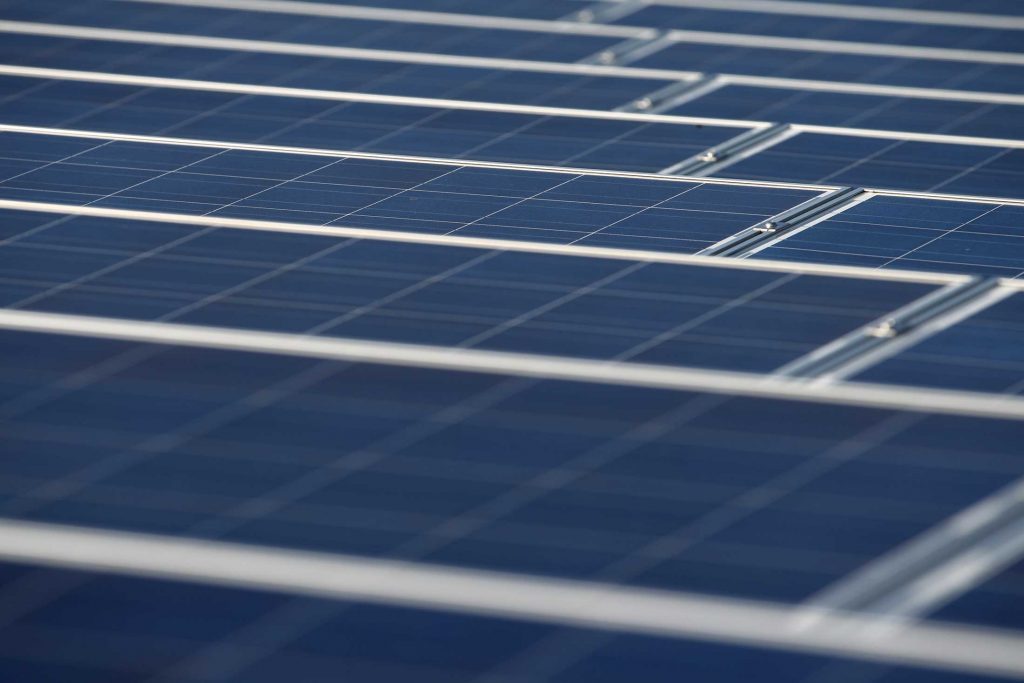
The U.K. deepened its economic relationship with Iran in a solar deal worth $720 million less than a day after U.S. President called the Persian Gulf nation a “ rogue state” and threat to global security.
Current and former Iranian and U.K. officials gathered in London to announce a 600-million euro plan to develop a giant solar park with cash from investors in Asia, Europe and the Middle East. The agreement underscores how difficult it will be for Trump to dismantle the 2015 nuclear accord, or JCPOA, between six world powers and Iran.
“The British government has made it absolutely clear that it sees the JCPOA as important, it thinks the JCPOA should continue,” Norman Lamont, a former chancellor of the exchequer who is also chairman of the British Iranian Chamber of Commerce, said at a press conference on Tuesday. “The British government is also backed by other governments in the U.K. and in Europe.’’
The future of the accord, which caps Iranian nuclear activities in exchange for sanctions relief, has been at risk since Trump took office in January. Even as UN monitors have certified eight separate times since January 2016 that Iran is sticking by the terms of the accord, the U.S. administration has accused the government in Tehran of violating the spirit of the agreement. Trump told leaders on Monday in New York it was “one of the worst” deals the U.S. has entered.
All the other signatories to the nuclear accord — China, France, Germany, Russia and the U.K. — have announced that they’re committed to keeping the deal. The solar project by Quercus Investment Partners Ltd., a London-based renewables developer, shows international interest continues in Iran’s market, despite Trump’s rhetoric.
Read More on Atomic Inspections Doubling in Iran Under Deal Questioned by Trump
“The fact that the European partners are rushing to Iran, for different industries, auto industries energy industry, shows that they do not believe at all that the failure of JCPOA is an option,’’ Hamid Baeidinejad, ambassador of Iran in the U.K., said at the press conference.
The U.K’s trade with Iran rose 42 percent from January to October in 2016 and 57 percent in the same period in 2017, according to Lamont. Global trade with Iran rose 13 percent last year to $113 billion, according to data compiled by Bloomberg.
“The opportunities are tremendous, they really are tremendous,” said Richard Bacon, a current member of Parliament from the ruling Conservative Party. “I sense that we’re on the cusp of something very special, the scale of the opportunities is really quite extraordinary.’’
The U.K. investment follows separate announcements by China, the European Union, France, Japan and Russia that they’ll continue to support the accord. Europeans are also positioning themselves against a unilateral withdrawal from the JCPOA.
“This would damage not only U.S. interests but U.S. international standing and credibility,” 76 European leaders wrote in an open letter urging Trump to stick with the agreement.
Should the U.S. abandon the accord, the other countries “would work to see the nuclear deal continued with Iran, even in the absence of U.S. participation, and that could include defending European companies and individuals from any re-introduced U.S. sanctions and supporting legal action to do so.”
A U.S. bid to toughen the Iranian accord has inspired unified UN opposition.